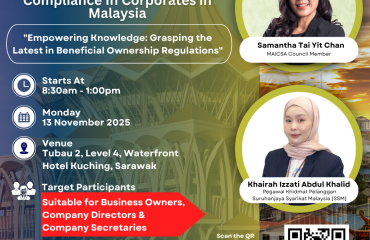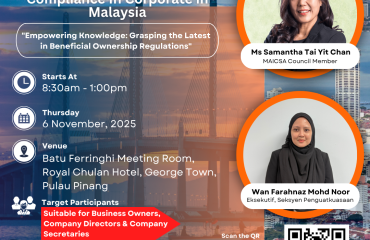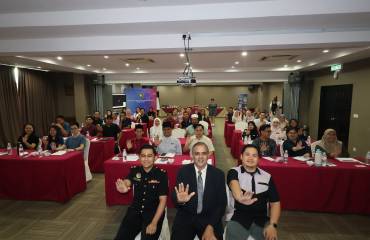PRESS STATEMENT
FOR IMMEDIATE RELEASE
Article 13 Review of United Nations Convention against Corruption
Putrajaya, 4 July 2017 – The Malaysian Anti-Corruption Commission (MACC) invited the Institute for Democracy and Economic Affairs (IDEAS), Center to Combat Corruption and Cronyism (C4) and Transparency International Malaysia (TI-M) as representatives of civil society organisations to participate in the review process of Malaysia’s implementation of Article 13 of the United Nations Convention against Corruption (UNCAC). Article 13 of the convention ratified by Malaysia in 2008 concerns the signatory State’s effort to promote active participation of individuals and groups outside the public sector in the prevention and fight against corruption. In this second review cycle, representatives from the UNODC Secretariat, Swaziland and Timor-Leste were charged with conducting the process.
The group of CSOs emphasised structural problems that have made civil participation against corruption difficult:
- The MACC’s lack of independence was highlighted as a main reason of faltering public confidence required to encourage reporting and whistleblowing of corruption cases. Not only does the appointment of the MACC Chief Commissioner fall under the office of the Prime Minister, its ability to pursue cases of high government profiles is significantly diminished as the power to prosecute is ultimately vested in the Attorney General, advisor to the individuals in question.
- It was also highlighted that protection afforded to whistleblowers was insufficient as the Whistleblower Protection Act 2010 disqualifies individuals that report to NGOs, the media and non-law enforcement agencies. Consequently, the numbers of whistleblowers to come forward have been low – in 2014, only 10 were afforded protection.
- The need for a Freedom of Information (FOI) Act at the federal government level was accentuated, noting that the Official Secrets Act 1972 has effectively made all government documents classified by default. This has largely hindered meaningful public participation in anti-corruption initiatives. Only Selangor and Penang have FOI enactments in place.
- Additionally, the need to mandate asset declarations by senior public officials and Members of Parliament was stressed, noting the difficulty of the public to assess the state of political corruption.
Furthermore, the lack of public consultation in the process of drafting new laws was underscored. When asked about existing mechanisms to collect comments on proposed legislation, Mr Chew Phye Keat of TI-M impressed that there are no mandatory processes for public consultation, noting that it happens occasionally but this is inconsistent across government. Tricia Yeoh of IDEAS brought to light the shortcomings of parliamentary procedure, such as in the case of the National Security Act 2016 that was passed in less than 48 hours, depriving Parliamentarians sufficient time to study the implications of the law. Cynthia Gabriel of C4 also pointed out that the prevention of public disclosure of the Auditor General report on 1MDB using the OSA 1972 would appear to violate the spirit of the Audit Act 1957, which generally specifies that the AG reports should be tabled in Parliament.
It is important that the MACC collaborates with CSOs to combat malfeasance and to actively encourage the public to report cases of high profile corruption. In order to truly strengthen participation from the public, the independence of public institutions must first be established.
Prepared by:










